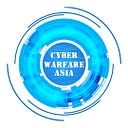Disinformation a key instrument in Indo-China relation
According to the recent report by scroll.in, amid heightened geopolitical tensions, India and China are denying visa extensions to each other’s journalists, each effectively expelling almost all media personnel from the rival country in recent months.
The Chinese government recently froze visa for three Indian journalists, which led to barring them from returning to China to work. On the other hand,New Delhi has been issuing Chinese journalist short-term visas in recent years because it claimed that some Chinese state media reporters were allegedly involved in non-journalistic activities in India.
In 2019, EuDisinfo lab uncovered vast network of 265 coordinated fake local media outlets in 65 countries serving Indian interests, as well as multiple dubious think tanks and NGOs.
The (French) Les Jours report shows how the Indian lobby gets European politicians to support Indian foreign interests. Julie Ward, a British member of the European parliament, was approached by Madi Sharma, a lobbyist, to co-sign articles for EP Today on women’s rights in Saudi Arabia.
Les Jours noted that a company run by Ankur Srivastava, also of the Srivastava family, makes malware which he said is only sold to Indian intelligence services. It also noted that the Srivastava group runs several fake news websites including Socialist Weekly, Khalsa Akhbar Lahore and the Times of Azad Kashmir, which are likely linked to Indian intelligence services.
Even Asian News International (ANI), an Indian news wire agency, has a history of spreading disinformation.It has previously been accused of reporting the Indian government’s ‘version of truth’ by independent magazine The Caravan. Moreover, two previous EU DisinfoLab investigations have revealed that ANI regularly quoted the defunct ‘EP Today’ and ‘EU Chronicles’, two fake media outlets supposedly specialising in EU affairs that were, in fact, created to push anti-Pakistan/China narratives in India.
